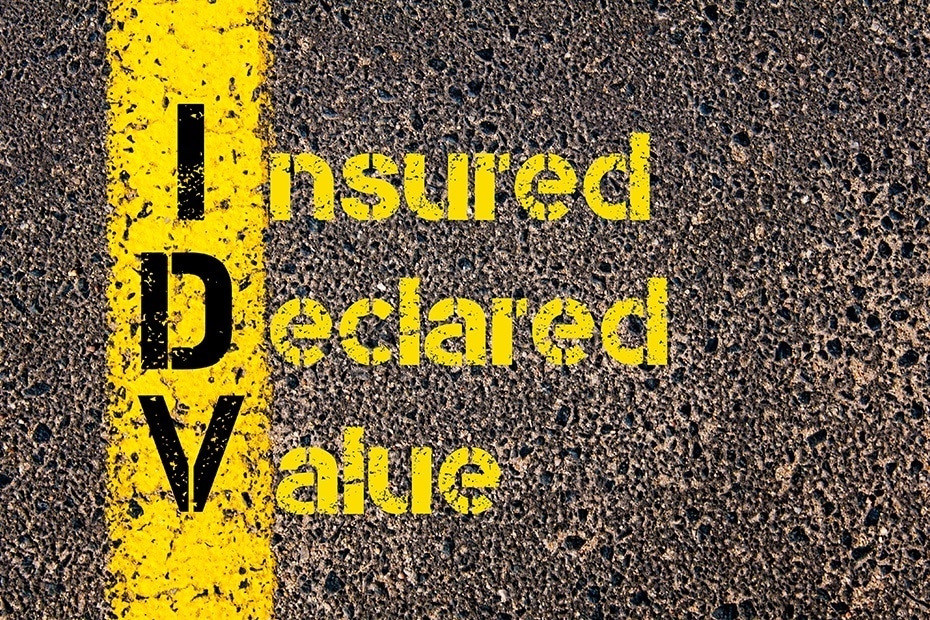
Insured Declared Value (IDV) Calculation Explained for Car Insurance
How to calculate idv for car insurance – Purchase of a car insurance plan is a significant decision. Also, there are a variety of insurance companies offering new policy plans as well as policy renewal plans at competitive premiums. People usually tend to buy a car insurance plan which is available for the least premium. Whereas, the right approach is to compare different car insurance plans on a number of factors like offered IDV, network of cashless garages, claim settlement ratio, coverage, etc besides the premium of the plan. This article aims to highlight the importance of IDV i.e. Insured Declared Value and its determination so that you can make an informed decision for your car insurance plan with ease.

What is Insured Declared Value (IDV)?
IDV full form is Insured Declared Value, is the maximum sum assured to you by an insurance company which you are entitled to receive in terms of compensation in the event of total damage or loss incurred by your car. IDV value is basically the current market value of your car. In other words, IDV is the maximum amount that you can claim for reimbursement in case your car suffers damage in a mishap. Please note that IDV value is applicable only for a comprehensive car insurance policy or standalone own-damage car insurance policy as in the case of a third party car insurance plan, the amount of compensation is decided by a court of law. The car insurance premium for a policy is directly proportional to the IDV of your car taken into account by the insurance company. Higher the IDV, higher will be the amount of premium source. However, it is important to note that the premium is usually 2%-3% of the IDV.
How Is IDV Value Calculated By An Insurance Company?
The insurance company determines the current value of your car or its IDV by taking factors like brand, model and age of the car into consideration. IDV is determined on the basis of selling price fixed by the manufacturer and the depreciation applicable to it. The simple formula to calculate IDV is: IDV = Manufacturer’s Selling Price – Depreciation In case, you have purchased additional car accessories which were not originally fitted by the manufacturer at the time of delivery of the car to you are added separately to the IDV. In such as case the IDV is equal to Insured Declared Value= (Company’s listed price – Depreciation value) + (Cost of vehicle accessories – Depreciation value of the accessories) Besides, you will be interested to know facts about setting correct IDV for Car Insurance renewal. Rate Of Depreciation Applicable On The Car As Per Its Age:
| Age of Car | Rate of Depreciation Without Zero Depreciation cover |
| Under 6 months | Nil |
| 6 months to 1 year | 5% |
| 1-2 years | 10% |
| 2-3 years | 15% |
| 3-4 years | 25% |
| 4-5 years | 35% |
| 5-10 years | 40% |
| Above 10 years | 50% |
The final value of your car calculated after deducting applicable depreciation is the maximum compensation that you can claim at the time of loss or theft. Thus, it is very important to know IDV determined by your insurer. You should never reduce your IDV for paying less premium; otherwise, you will end up getting less claim and incur a loss at the time of a claim settlement.
Impact of IDV in Car Insurance Policy
Insured Declared Value plays a very crucial role when it comes to calculating the own-damage premium of your car insurance policy. Though an own-damage car insurance cover is optional, it is a recommended cover as it helps you mitigate the own-damage expenses of your car. Higher will be the IDV, higher will be your own-damage car insurance premium.
Conclusion
IDV decides the premium as well as the claim amount of your car insurance policy. Therefore, you must try to get the true IDV of your car. If you settle for a lower IDV, initially you might end up saving some money by cutting down on the value of the premium, but at the end, you might lose a big chunk of compensation borne by the insurance company at the time of claim settlement. It is always recommended to get your insurance at the full amount of IDV because this is what you are going to get at the time of damage or loss. Similarly, getting a way too higher IDV is also not recommended as in that case you would unnecessarily pay a higher premium. Also Read: 4 Things to Know Before Purchasing Your First Car Do let us know your queries in comment box, our expert will be happy to assist you on car insurance related topics. Don’t forget to subscribe to our email newsletter for more helpful tips, insights, and guides!




